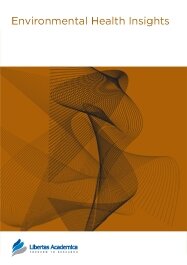

Publication Date: 16 Sep 2008
Journal: Environmental Health Insights

Chief, Water and Environmental Sanitation, UNICEF, Zambia, Associate, Water, Engineering Development Centre, Loughborough University, U.K.
Abstract
The global environmental sanitation crisis cannot be denied: well over a century after the sanitary revolution in 19th century Europe, 40% of the world’s population still lacks access to improved sanitation. Important lessons from the past must be applied today if the crisis is to be averted. Sanitation has suffered from a lack of prioritization for as long as it has remained the poor relation to water supply. The International Year of Sanitation 2008 provides an opportunity to separate the two and give sanitation the emphasis it requires. The economic argument for sanitation must be articulated and non-health incentives for improved sanitation exploited. Environmental sanitation results in a multitude of socio-economic benefits and can contribute positively to all the Millennium Development Goals. Community-led bottom-up approaches, rather than supply-led or technology-driven approaches, are most effective in increasing and sustaining access to sanitation but need to be implemented at scale. Targeted strategies for urban and school sanitation are also required. Evidence-based advocacy can help develop the political will that is now needed to ensure sufficient public sector investment, leadership, legislation and regulation to ensure that the fundamental human right of access to sanitation is realized.
PDF (183.79 KB PDF FORMAT)
RIS citation (ENDNOTE, REFERENCE MANAGER, PROCITE, REFWORKS)
BibTex citation (BIBDESK, LATEX)
XML
PMC HTML
As a peer reviewer for Environmental Health Insights, I have had the opportunity to read several very important research articles in my field. Based on my experience, the submission process, review standards, and publication expectations are rigorous and demanding as other high impact journals. I look forward to further reviewing papers for Environmental Health Insights and learning from my peers and other leaders in the field.

All authors are surveyed after their articles are published. Authors are asked to rate their experience in a variety of areas, and their responses help us to monitor our performance. Presented here are their responses in some key areas. No 'poor' or 'very poor' responses were received; these are represented in the 'other' category.See Our Results
Copyright © 2013 Libertas Academica Ltd (except open access articles and accompanying metadata and supplementary files.)
FacebookGoogle+Twitter
PinterestTumblrYouTube